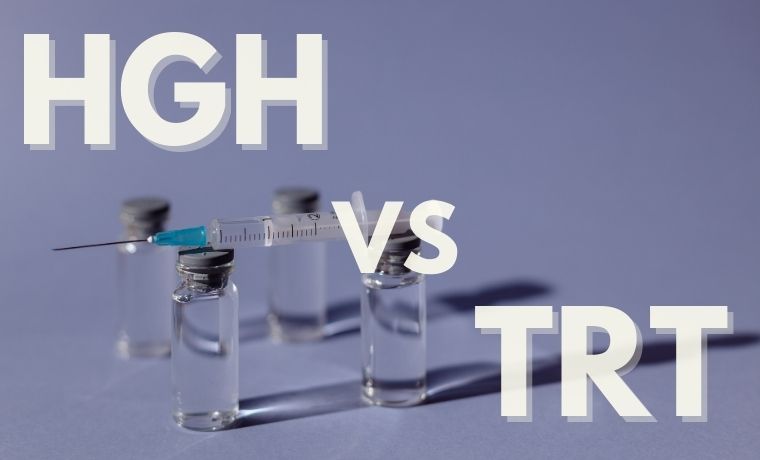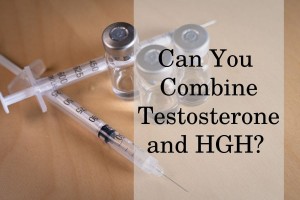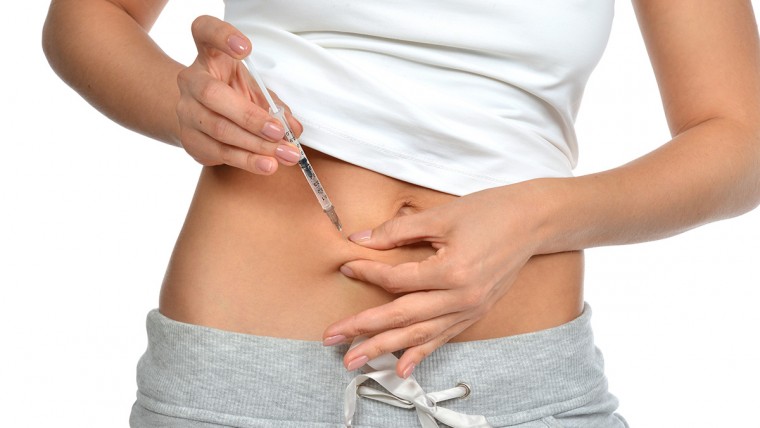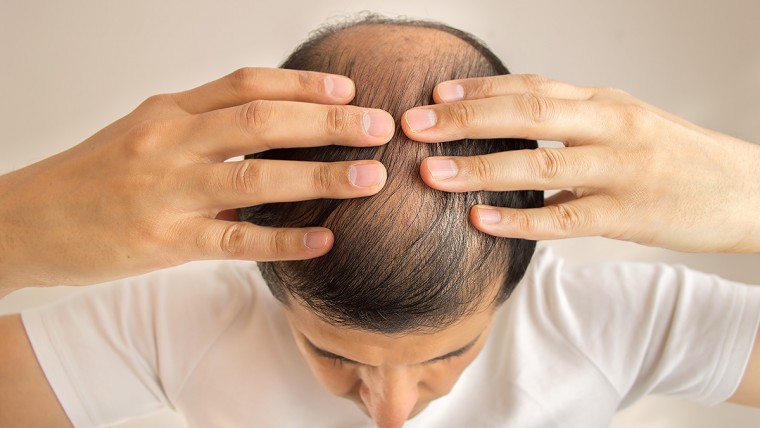In this article
Human growth hormone (HGH) and testosterone (T) are two of the most anabolic hormones in the human body. Unfortunately, endocrinological conditions such as growth hormone deficiency (GHD) and hypogonadism can disrupt their normal synthesis and lead to debilitating symptoms.
These symptoms can be managed successfully with the use of hormone replacement therapies such as HGH therapy and testosterone replacement therapy (TRT). Currently, they are the drugs of choice for patients with low HGH or low T respectively.
The correct treatment for the management of your condition will be determined by your doctor, after assessing your symptoms and test results. Using either or both therapies without medical supervision hides health risks that might significantly outweigh the possible benefits.
What’s the main difference between HGH and testosterone?
Testosterone is a steroid hormone that regulates sexual function, muscle mass, bone mass and stimulates the production of sperm and red blood cells.
On the other hand, HGH is a peptide hormone that stimulates the growth, reproduction, and recovery of almost all cells in the human body. Its anabolic effects are not produced directly but mediated by another hormone called Insulin-like Growth Factor 1 (IGF-1).
HGH is produced in a pulsatile manner by the pituitary gland and has one or more daily peaks, usually during sleep. In comparison, testosterone is produced by the testicles and its levels follow a circadian rhythm.
Despite their completely different structure and secretion, there is a complex interplay between the effects of the two hormones. Learn more about the difference between HGH and Steroids in effectiveness and safety.
Should you stack HGH and testosterone?
There is no contraindication against combining growth hormone and testosterone together in patients with more than one endocrine deficiency. Such an example is Multiple Pituitary Hormone Deficiency (MPHD).
In those cases, HGH and TRT can be combined to successfully manage the different symptoms.
Stacking HGH and testosterone potentiates their anabolic and fat-burning effects. A study in 12 elderly men revealed that a combination of HGH and testosterone therapy leads to better improvements in body composition than either therapy alone.
Furthermore, a larger randomized trial in 131 elderly people also investigated the effects of a combined TRT and HGH therapy compared to either of them combined with placebo. In the tested men, the combination of testosterone and growth hormone led to the highest gains in muscle and strength as well as the most prominent fat loss.
The dosage, effectiveness, and side effect of a combined therapy should be closely monitored by an experienced doctor such as an endocrine specialist
Off-label use of HGH and testosterone products, such as popular bodybuilding stacks, might lead to more health risks than benefits. Side effects may include water retention, roid gut, edemas, high blood pressure, reduced insulin sensitivity, and more.
Long-term use might have negative effects on cardiovascular, endocrine, and metabolic health.
Can HGH therapy help with low T?
There is a lack of scientific evidence to suggest that HGH therapy might increase T levels in adult men. Some in vitro trials suggest that growth hormone might be able to stimulate the production of testosterone in rat testicles but the research is only preliminary.
Optimal HGH and IGF-1 levels are necessary for normal libido and erection in men but the mechanism is not related to increasing T levels.
Studies have revealed that males with growth hormone deficiency might have sexual problems independent of their T levels. Besides, IGF-1 levels correlate with scores of sexual health and erectile function.
Low T can lead to similar symptoms such as low libido, erectile dysfunction, and impotence. In addition to that, men with hypogonadism can also experience infertility, since testosterone is required for the normal growth and maturation of sperm.
However, low T symptoms can be managed only with the correct testosterone replacement therapy. Thus, it is impossible to compare testosterone to growth hormone and determine which hormone is more effective in the treatment of a specific indication.
The deficiency of either hormone can lead to debilitating symptoms which are often misinterpreted by patients.
Determining whether your symptoms are due to low GH levels or testosterone problems requires a diagnostic exam and tests performed by an experienced medical doctor.
Only then you can safely receive the correct hormonal therapy for optimal results. You should never attempt to self-diagnose and search for a treatment online without medical consultation.
Can testosterone therapy increase GH levels?
Testosterone might potentiate the anabolic effects of growth hormone by influencing IGF-1 levels. A study in 12 patients with GHD reported that the co-administration of testosterone and HGH leads to higher IGF-1 levels when compared to HGH therapy alone.
It is unclear if naturally higher levels of testosterone might lead to higher levels of HGH in healthy people
Testosterone augments the effects of HGH by further increasing the levels of circulating IGF-1 but the exact mechanism is unknown.
However, testosterone does not stimulate HGH or IGF-1 production in the absence of natural growth hormone secretion. Thus, patients with GHD are not likely to experience an increase in their GH levels or improve their symptoms by taking testosterone treatment if their pituitary function is completely shut down.
Testosterone administration can affect the natural HGH production only when the latter is preserved
According to a study in hypogonadal men without GHD, the administration of treatment can increase natural GH levels. The scientists report that the increase is mainly due to the higher peak amplitude of the GH pulses.
Increasing testosterone to supraphysiological levels stimulates the pulsatile secretion of growth hormone. With this information, we can speculate that testosterone treatment can lead to significantly increased IGF-1 production.





